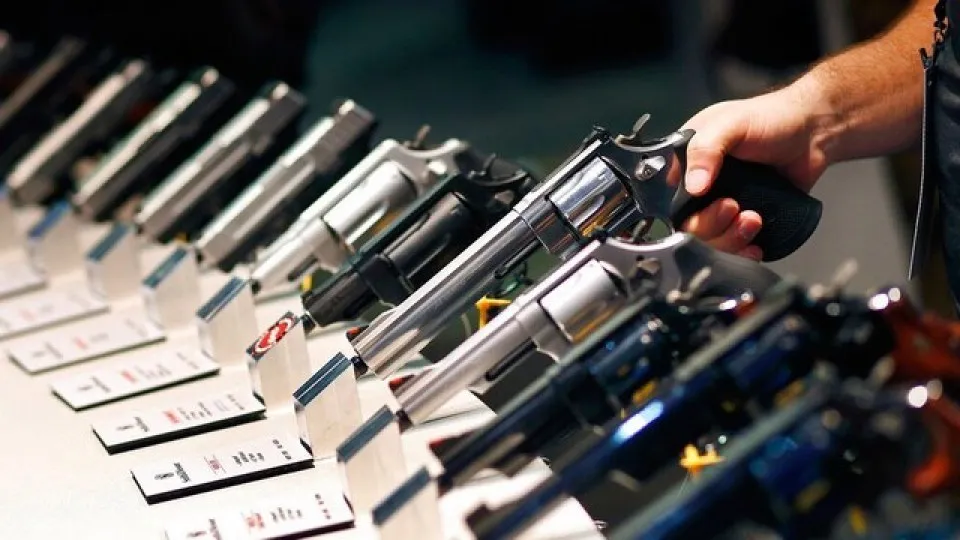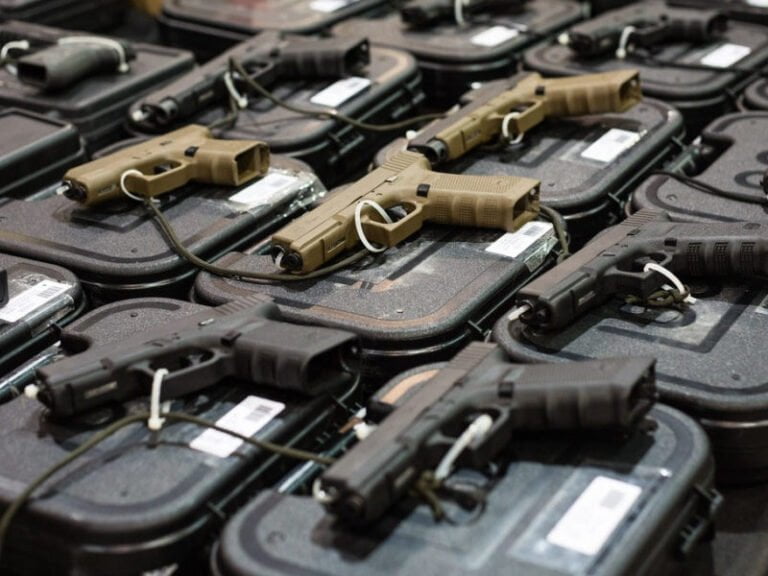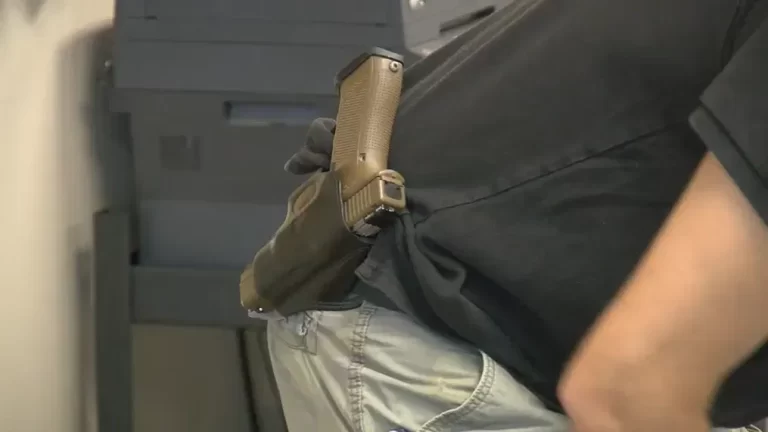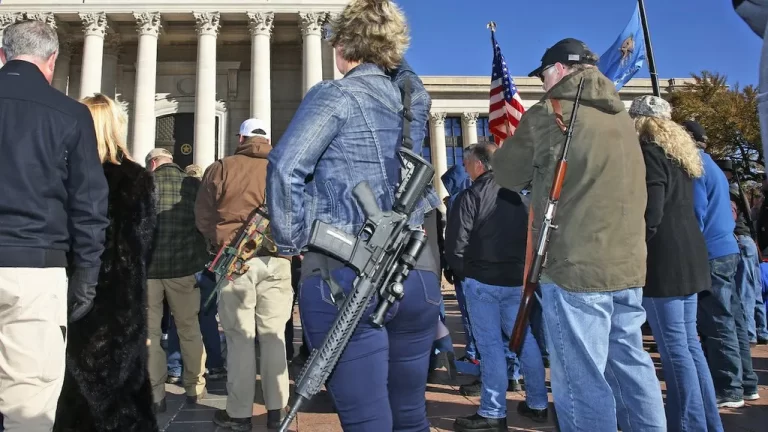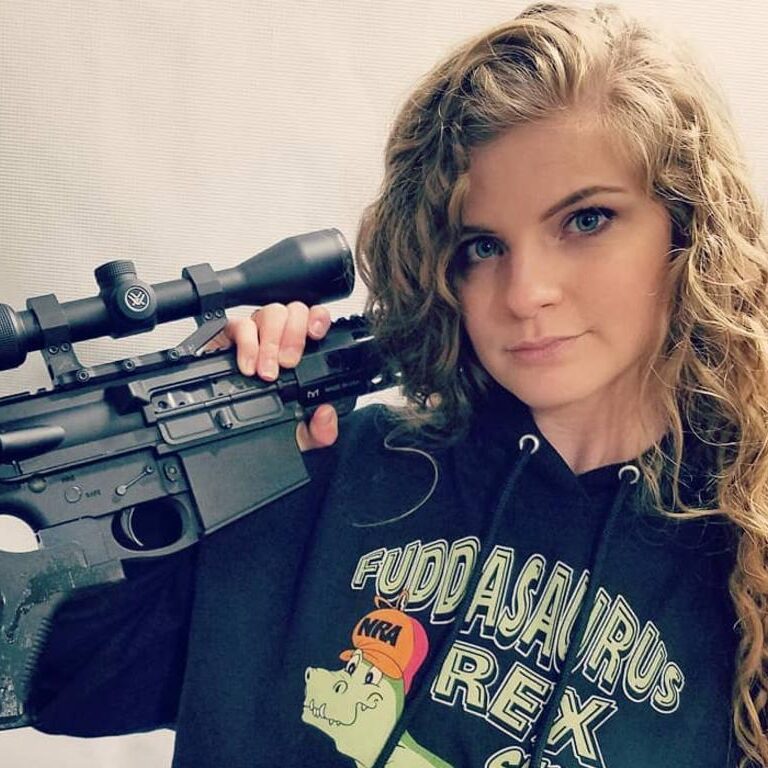West Virginia Gun Permit: Laws, Cost, Restrictions, & FAQs
Introduction
West Virginia is known for its permissive gun laws, allowing its residents to carry firearms without a permit openly. However, if you wish to carry concealed firearms, you’ll need a valid gun permit. In this article, we’ll cover all the essential information about gun permits in West Virginia, from the application process and requirements to reciprocity with other states.
How to Get a Gun Permit in West Virginia
To obtain a gun permit in West Virginia, you must meet specific requirements set forth by the state’s gun laws. Firstly, you need to have legal rights for the possession of firearms and fulfill the age requirement for the type of permit you wish to apply for. The state issues regular permits for adults and provisional permits for individuals between the ages of eighteen and twenty-one.
West Virginia Gun Permit Laws
Open Carry in West Virginia
West Virginia allows anyone who is eighteen years old or older and has legal rights for the possession of firearms to openly carry them without a permit. However, there are certain off-limit areas for firearms possession, such as schools and courthouses.
Prohibition of Machine Guns and Semi-Automatic Firearms
While West Virginia permits open carry, there are restrictions on possessing machine guns and similar semi-automatic firearms. These firearms are only allowed for law enforcement officers, military members on duty, and federally licensed individuals.
Ammunition Regulations
Thankfully, there is no prohibition on the types of ammunition permitted in the state, meaning you can choose from a wide range of options for your firearms.
West Virginia Pistol Permit Requirements
To apply for a pistol permit in West Virginia, you must meet a series of requirements:
- Age Requirements: You must be at least twenty-one years old to apply for a regular permit. However, if you are between eighteen and twenty years old, you can apply for a provisional license.
- Firearm Training Course: Completing a West Virginia concealed carry permit course for firearm training is a must.
- Citizenship and Residency: You must be a legal citizen or resident of the United States and reside in the county from where you are making the application.
- Substance and Alcohol Restrictions: You must not be an alcohol addict or a user of any substance controlled by the Drug Law Enforcement Agency.
- DUI Convictions: No multiple convictions for driving under the influence of alcohol are allowed.
- Felony and Misdemeanor Convictions: You must not have any conviction for a felony case unless pardoned or expunged by a court of law. Additionally, no convictions for misdemeanor crimes or domestic assault according to federal law.
- Domestic Violence Convictions: You must not be a convict for any misdemeanor crime or domestic violence against a spouse, sexual or intimate partner, a person who cohabits with you, a parent or guardian, a child, or any member of your household.
- Parole or Probation: You must not have any conviction for a felony crime in which you have a sentence that confines you or are currently serving parole or probation under the supervision of a law court.
- Court Order Restrictions: No court order should restrict you from the possession of a firearm in the state.
- Mental Health: You must not be mentally unstable or a patient of any mental institution unless you have a court order stating that you are now mentally fit to possess a firearm.
- Protection Orders and Red Flags: You must not have a protection order or a red flag from any court of law in the state.
- Federal Law Requirements: You must meet all federal law requirements for the application of a CCW (Concealed Carry Weapon) permit in the United States.
Different Types of Gun Permits in West Virginia
- State Permit to Purchase Long Guns: West Virginia does not issue a state permit to purchase long guns.
- State Permits to Purchase Handguns: West Virginia does not issue a state permit to purchase handguns.
- State Permit to Open Carry: West Virginia is a permissive state, so no permit is required to open carry.
- State Permits to Conceal Carry Long Guns: West Virginia does not issue a state permit to conceal long guns.
- State Permits to Conceal Carry Handguns: West Virginia issues a pistol permit to conceal carry handguns in the state.
Cost of Getting a Gun License in West Virginia
The cost for the initial permit application and renewal permit applications in West Virginia is fifty dollars, which includes twenty-five dollars for the criminal record background fee. For West Virginia provisional permits, the cost is forty dollars, including the same twenty-five dollars for the criminal record background fee.
Retired law enforcement officers and discharged military veterans do not have to pay for a criminal record check.
Gun Permits Application and Renewal Process in West Virginia
To apply for a gun permit in West Virginia, you need to follow these steps:
- Complete a Firearm Training Course: Enroll in a West Virginia concealed carry permit class for handgun training, either in person or online, taught by a state-certified firearm instructor.
- Obtain Your Application Form: Download the application form from an online portal.
- Submit the Necessary Documents: Complete and notarize the application form, and submit it along with your firearm training certificate, passport photograph, and driver’s license or state identification card to the sheriff’s office of your local county. You’ll also need to pay the required fee.
- Pay Additional Fee: After the application, the sheriff will conduct an investigation based on the information provided and the permit requirements in the state. Upon approval, you’ll need to pay an additional twenty-five dollars to the sheriff.
- Collect Your Application: Once your application is approved, you’ll be contacted to pick it up.
The renewal process for a gun permit in West Virginia is similar to the initial application process.
Gun Reciprocity with West Virginia
West Virginia recognizes pistol permits from any other jurisdiction in the country. This means that if you have a valid West Virginia pistol permit, you can possess firearms in several other states as well. However, it’s crucial to comply with all laws and regulations of the state you’re visiting.
States That Recognize West Virginia Pistol Permits
As a West Virginia licensee, you can possess firearms in the following states with your pistol permit:
- Alabama
- Delaware
- Indiana
- Montana
- North Dakota
- Utah
States with Restricted Reciprocity
These states will allow you to use your West Virginia gun license to possess firearms, but you must meet other individual requirements before doing so. They include:
- Colorado
- Florida
- Georgia
- Iowa
- Louisiana
- Michigan
- Minnesota
- Nebraska
- Nevada
- New Mexico
- North Carolina
- Ohio
- Pennsylvania
- South Carolina
- Tennessee
- Texas
- Virginia
- Wisconsin
- Wyoming
- Puerto Rico
States That Do Not Require a Pistol Permit
In these states, you can possess firearms without a gun license, as long as you meet the minimum age requirement and do not have any restrictions or prohibitions for the purchase of firearms. They are:
- Arizona
- Alaska
- Arkansas
- Idaho
- Kansas
- Kentucky
- Maine
- Mississippi
- Missouri
- New Hampshire
- Oklahoma
- South Dakota
- Vermont
- West Virginia
Relevant Gun Permit Laws and Legislation in West Virginia
Possession of Firearms in Private Vehicles
West Virginia requires a gun permit for firearms in private vehicles, except for anyone who is at least twenty-one years old or eighteen years old for a military member and has legal rights to possess firearms.
[W. Va. Code Ann. § 20-2-5(9)]
[W. Va. Code Ann. § 61-7-7]
Possession of Firearms in Roadside Areas
West Virginia gun laws allow concealed carry of firearms in roadside areas of the state.
Possession of Firearms in State Parks, Forests, and Wildlife Management Areas
According to the statute, [WV DNR State Parks Rules], you do not need a permit to possess firearms in West Virginia parks, forests, or wildlife areas.
Possession of Firearms in Restaurant and Bar Areas
Except there is a post prohibiting the possession of firearms in the area, no gun statute in West Virginia bans the possession of firearms in restaurant and bar areas of the state.
Possession of Firearms in Hotels
Hotels in West Virginia can come up with gun policies for the possession of firearms on their premises. West Virginia statute permits them to do this. Therefore, being a licensee does not mean you can open or conceal carry in hotels. For more information, visit hotel websites and learn more about their firearm regulations.
Possession of Firearms in Employee Parking Lots
According to the statute, [W. Va. Code Ann. § 61-7-14], no employer, landowner, or agent in charge of a property may prohibit an employee or an invited person from possessing firearms if:
- The person is a legal firearm owner, and the firearm is lawfully possessed.
- The person stores the firearm in a vehicle in a parking lot or an area designated for cars.
- The firearm is not visible from outside the vehicle.
- The person is lawfully present within the premises.
Conclusion
West Virginia’s gun permit laws are designed to ensure the responsible ownership and use of firearms within the state. By understanding the application process, requirements, and reciprocity agreements, residents can exercise their Second Amendment rights responsibly and lawfully. Whether you want to open carry or obtain a concealed carry permit, it is essential to comply with all regulations and be aware of changes in gun laws.
FAQs;
Q1: Do I Need a Permit to Conceal Carry Firearms in West Virginia?
Yes, you can only conceal carry in West Virginia if you have a pistol permit.
Q2: For How Long Is a West Virginia Concealed Carry Permit Valid?
The maximum validity period for the permit is five years.
Q3: How Many Types Of Pistol Permit Does West Virginia Issue?
West Virginia issued two types of pistol permits, a regular permit, and a provisional permit. Provisional permits are for residents between the ages of eighteen and twenty-one years old.
Q4: Can Non-Residents Apply For West Virginia Gun Permits?
West Virginia only issues a permit to residents and military members posted to the state. Other non-residents cannot apply for West Virginia gun licenses.
Q5: How much is a gun permit in West Virginia?
West Virginia is a constitutional carry state so permits are not required to carry firearms openly or concealed in public places. However, West Virginia does offer an optional concealed carry license for reciprocity benefits when traveling to other states. The fees for a 5-year concealed carry permit in West Virginia are $100 for residents and $150 for non-residents.
Q6: Can anyone carry a gun in West Virginia?
In West Virginia, law-abiding residents aged 21 and over who are legally eligible to own firearms can generally carry guns openly or concealed without any permit. Constitutional carry took effect in 2016. Certain restrictions apply for felons, those under the influence of controlled substances, carrying on restricted property like schools, and other prohibited situations.
Q7: What disqualifies you from owning a gun in West Virginia?
Reasons you can be disqualified from legally owning a firearm in West Virginia include felony convictions, misdemeanor domestic violence convictions, being subject to domestic violence restraining orders, drug-related offenses, being adjudicated as mentally defective, illegal alien status, dishonorable military discharge, and renouncing U.S. citizenship.
How Can I Change The Name And Address On My West Virginia Pistol License?
To change the name or address on your West Virginia gun permit, first, complete a change notification form within twenty days of effecting the change, notarize it, and submit it to a local sheriff’s office. The cost is five dollars.
